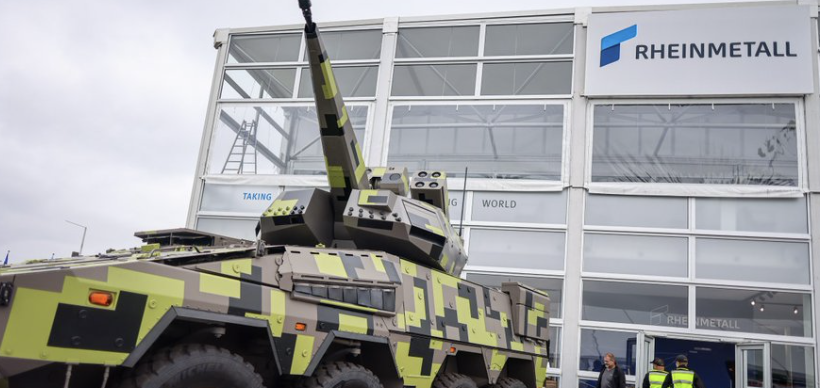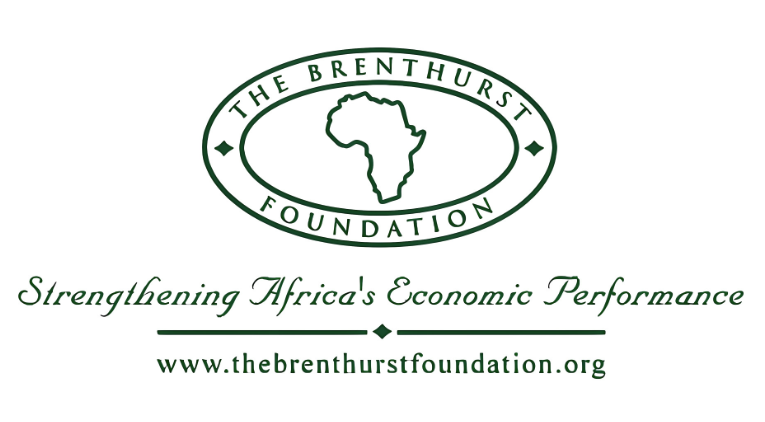News
How to Blow Up your Own Economy — the Cost of SA’s Rheinmetall Indecision
The ANC’s position on Russia’s war with Ukraine is costing South Africans – big time.

Former Director, The Brenthurst Foundation

Former Research Director, The Brenthurst Foundation

The ANC’s tacit support for Vladimir Putin’s illegal invasion (Pretoria twice abstained on voting on this issue at the UN, among other steps) is assumed, in its defence, to be part of a grander strategy aimed at changing the international order through the BRICS, of which Russia and South Africa are both members. This would, the argument goes, bring benefits, because the external order is currently skewed in the favour of the Global North – despite the obvious contradiction given that the very same global regime has brought massive economic upliftment over the past 30 years, in particular to BRICS members China and India.
The BRICS have become the totem around which South African foreign policy, its politicians and mandarins, dance and chant. Any possible costs of this policy direction are simply disregarded, even though it has probably added a premium of uncertainty for foreign investors in South Africa, at least those from the West.
Investment has stagnated if you exclude the 2021 spike which reflected the cross-border transaction involving Prosus’ acquisition of about 45% of Naspers.
This reasoning could be contested. The upside is greater, BRICS adherents argue, given the size of the economies in the grouping, particularly China and India, each 1.4 billion, and a bet on the future. Of course there are other indirect costs to this association, not least the clash of values between democratic South Africa, India and Brazil, and the autocratic nations which make up the rest of the BRICS membership, not least China and Russia.
But South Africa’s position on the war does not only impose indirect costs through this premium of uncertainty.
There are now direct costs and they will be felt directly by hundreds of thousands of South Africans as a result of Pretoria’s failure to make a decision on one issue.
In 2022, immediately following Putin’s decision to invade Ukraine, Poland placed an order worth several hundred million euros for munitions manufactured in South Africa by Rheinmetall.
Rather than make a decision, the National Conventional Arms Control Committee has simply stalled, effectively a decision by default.
Rheinmetall operates five munitions factories in South Africa in a 51%-49% joint venture with Denel. Together with its other international operations, Rheinmetall is today the largest manufacturer of 155mm ammunition in the West, along with a range of other calibres. As a result of the arms embargo against apartheid South Africa and the resulting indigenous development of the G5 and, later, G6 howitzers from a foreign design along with base-bleed ammunition (essentially enabling improved aerodynamics by filling the vacuum at the tail of the projectile), Rheinmetall is capable of producing the most accurate and long-range 155mm ammunition available, and on a scale larger currently than any other Western manufacturer. Even at maximum ranges of more than 75km, it maintains a circular error probable targeting accuracy well within a 1% dispersion.
While it has become the drone war in popular imagination, in reality the conflict in Ukraine has shown, again, the centrality of artillery in warfare. An estimated 70% of Ukraine’s casualties are caused by Russia’s artillery, rockets and mortars in a war where the Russians have fired as many as 40,000 rounds per day.
The Russian invasion has reminded the world that conventional war is a war of numbers.
The decision not to make a decision on the Polish order seems to be motivated by a fear that these shells could find their way to Ukraine, or by allowing Poland to pass its own stocks onto Ukraine to enable it to defend itself. It’s a convoluted logic, given that Rheinmetall’s largest customers are already in western Europe. And it’s especially problematic when Russia is acquiring its own supplies from North Korea (as many as 4.8 million shells may have been shipped, according to South Korea) and Iran (as many as 300,000 artillery rounds, millions of other rounds, hundreds of drones and 200 ballistic missiles).
At the same time, along with Kazakhstan, South Africa is a supplier of chrome ore to Russia – a critical component in the manufacture of gun barrels. More than half of the chromium Russia needs for artillery is imported.
South Africa’s exports of chromium ore and concentrates to the Russian Federation are officially recorded as peaking at 25,921 tonnes in 2021, before falling sharply to 104 tonnes in 2023. Yet the exact volume exported to Russia is difficult to ascertain because a significant portion of South Africa’s 19 million tonnes of annual production is exported through Mozambique’s Maputo harbour, which acts as an intermediary before it reaches its final destination. The reason for this is the near-complete failure of Transnet’s ability to export chrome locally through Richards Bay.
Rheinmetall had planned to invest more than R1-billion to increase its South African production to accommodate the Polish order.
Rheinmetall employs 2,500 workers at its five South African plants, along with ordering supplies directly from 1,500 subcontractors, which average about 30 employees each. Together, presuming an employee-dependent ratio of one to five, at least 250,000 South Africans have been negatively affected by this decision not to make a decision and in so doing for their government to support Putin, and that’s before contemplating the wider economic implications.
Countries get rich by making things and offering services, and selling them. Growth is driven by investment from which jobs, skills, technology and markets flow. The Rheinmetall order from Poland had the added advantage of placing South Africa on the right side of history in support of territorial integrity over instability, the rule of international law over force, the right to self-defence, and in upholding humanitarian law and human rights.
That it has chosen to abandon these tenets of global stability in search of a chimera of radical change, is an indication of just how far out of touch the ANC is now.
This article originally appeared on the Daily Maverick


